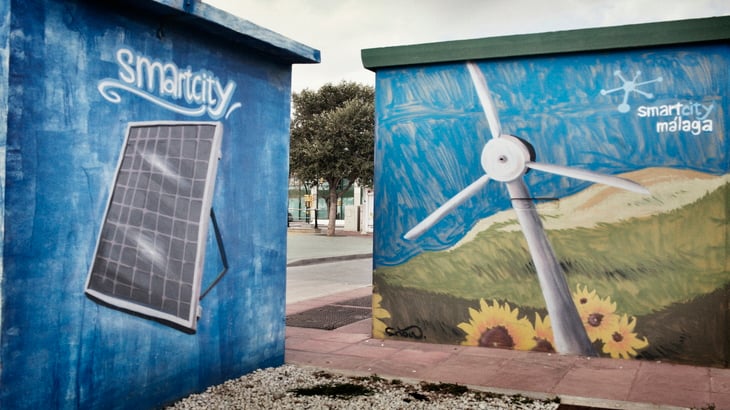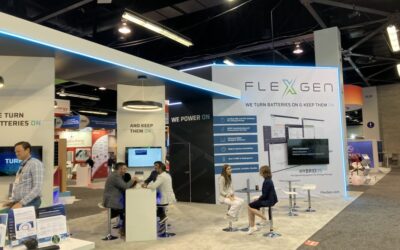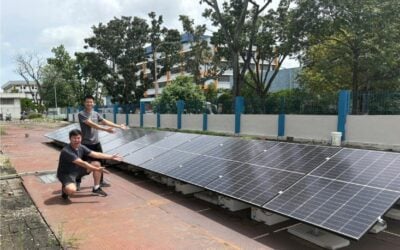
Enel has revealed the role its digital and distributed technology arm is playing in a European Union-funded project to simplify, enhance interoperability and standardise energy storage systems and their integration.
The EU contributed €3.5 million (US$3.75 million) grant funding towards the total €4.35 million cost of the project, InterSTORE, which like many EU-supported innovation projects is a convoluted acronym, and stands for “Interoperable opeN-source Tools to Enable hybRidisation, utiliSation, and moneTisation of stORage flexibility”.
Enjoy 12 months of exclusive analysis
- Regular insight and analysis of the industry’s biggest developments
- In-depth interviews with the industry’s leading figures
- Annual digital subscription to the PV Tech Power journal
- Discounts on Solar Media’s portfolio of events, in-person and virtual
What that is supposed to signify is that energy storage systems, while increasingly recognised as a vital enabling tool of the low carbon energy transition, come from a wide range of different vendors, encompassing different technologies, making it a sometimes complex task to create the right solution.
The project, part of the EU’s Horizon Europe innovation programme, will create an “innovative middleware”, an IT architecture that means customers aren’t locked into requiring a single vendor’s hardware and is technology agnostic enough to enable simpler integration of storage systems.
It will leverage advanced tech like AI and focus on data interoperability and standardisation, while the resulting software solutions, aimed at a launch before the end of 2025, will crucially be open source.
InterSTORE officially kicked off at the beginning of this year, led by German science and tech university RWTH Aachen, which has a faculty specialising in energy storage.
It covers nine different residential, commercial and industrial (C&I) and e-mobility-based use cases for energy storage, with solutions to be tried out at four different test facilities, one in Portugal, one in Germany, one in Italy and another in Austria.
Enel X, Eaton among project partners
Enel subsidiary Enel X is one of the 12 participating industry partners and this week issued a release detailing the work it is doing for the project.
Enel X will create software to predict and monitor energy consumption, while optimising the management of energy storage systems and distributed energy resources (DER) like solar PV, electric vehicle (EV) chargers, as well as the loads that the stored energy will be used to meet.
It will be tested at the Italian company’s own facility in Rome, called X Lab, with Enel X CEO Francesco Venturini commenting that the project is largely aligned with the company’s existing work to date in “developing solutions to improve the efficiency of storage systems”.
“It is now more urgent than ever to streamline energy storage processes, and we must be prepared to take on this challenge in order to carry out the energy transition and fully embrace a circular mindset,” Venturini said.
In 2021, Energy-Storage.news interviewed Enel X Battery Energy Storage solutions chief David J.A. Post, who explained just how central software is to the value proposition of C&I energy storage. Enel X launched shortly after its parent company bought up US energy storage software developer Demand Energy in 2017.
Also taking part is power management technology specialist Eaton. Eaton’s energy management system (EMS), is currently compatible with solar PV systems, as well as with the company’s own EV charge and battery storage hardware.
Eaton will work with other EMS providers to compare and contrast how their systems work and operate, and then seek to figure out how new DERs such as heat pumps or hydrogen electrolysers can be added into the EMS’ control system capabilities.
“The sun doesn’t always shine and the wind doesn’t always blow—so widespread energy storage is vital to Europe’s successful transition to renewables and the electrification of everything. However, today’s solutions are very diverse and often incompatible,” Dominik Laska, director of Eaton’s European Innovation Centre said in February.
“However, today’s solutions are very diverse and often incompatible. To enable widescale adoption, we need a unified approach to energy storage management.”
Along with more established players like Enel X and Eaton, others participating in the InterSTORE interoperability and standardisation project are newer names.
One is CyberGrid, a provider of a cloud-based platform for managing grids and DER, with a background in virtual power plant (VPP) aggregation technologies. Its flagship product is CyberNOC, a platform for aggregating energy flexibility and monetisation.
Together with its parent company, Austrian flexibility services provider EVN, CyberGrid will recruit around 30 flexibility assets used by residential or small commercial customers for a demonstration of how an enhanced version of CyberNOC can add interoperability with other providers’ technologies, be used to optimise operation of battery energy storage system (BESS) assets and interface with software for smart energy solutions at community level.






